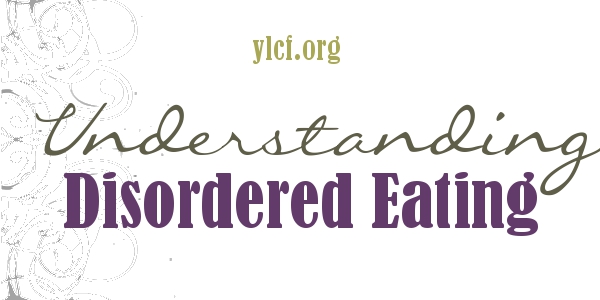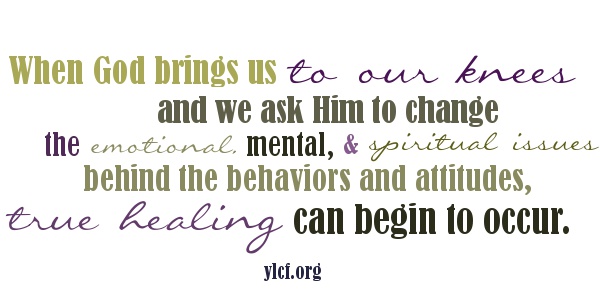Understanding Disordered Eating
by Neeva Walters
Author’s Note: Ever since I battled disordered eating for five years as a teenager, I have had a strong desire to encourage others who are caught up in the same struggle. I am not a doctor or therapist, but the Lord has definitely brought me to a better understanding of disordered eating through experience and study.
I don’t know if you struggle with your body image, food, or weight. You might be overeating, starving yourself, purging through exercise, fasting or vomiting, or you might be obsessed with healthy food. Maybe you are eating to comfort your feelings. I don’t know.
But I do know that God cares.
Whether you personally are seeking healing or want to help a friend or daughter, understanding disordered eating is an important step. This post is about what disordered eating is and why people practice it; the second post will be about recovery. Please realize, however, that understanding is part of the road to healing.
What is Disordered Eating?
Anorexia nervosa and bulimia are medically recognized eating disorders. Both of these include some form of prolonged, extreme food-related behavior, such as binging, purging, fasting, or over-exercising. However, just because we do not have extreme enough behavior to be medically diagnosed with an eating disorder does not mean we are alright.
Disordered eating describes eating behaviors that are disrespectful of our bodies and dominate our thinking and attitudes. It is best understood as an addiction, typically accompanied with a feeling of being trapped.
For example:
- obsessive calorie counting
- eating to stifle feelings
- hating ourselves for our eating habits
People with disordered eating have varying degrees of extremity in their habits. But it is not just an occasional moment of failing to glorify God in your eating (we all do that!); rather it is a consistent pattern of behavior and perspective that dominates your life.
If this describes you, you are not alone. Roughly eight million people in the United States have eating disorders and millions more are not diagnosed. Girls ages 13-20 are especially vulnerable because of the body image lies our culture tells them and the emotional volatility of those years.
How Does Disordered Eating Start?
Most people don’t suddenly decide, “I’m going to start disordered eating.” While everyone has a different story, there are some common issues that undergird a lot of disordered eating.
Spiritual
We each have a void in our hearts. Ultimately, this God-sized void is filled by a saving relationship with Jesus Christ. Yet even those of us who know Christ can still struggle with feeling empty. Often times, an especially emotional or stressful time of life will act as a catalyst to seek something other than Him. The world, Satan and our hearts say we need many things other than God, such as perfection, thinness, or acceptance.
We begin to worship these “idols” by imposing rules and regulations on ourselves. “If I just lose a couple pounds, people will notice me.” “I need to be perfect in order to be worthy of respect and love.” “Being average is not good enough.” It is easy for godly desires of excellence or beauty to become twisted into an idol in our heart.
Some other issues in our spiritual walk can affect our eating, such as:
- Pride: We refuse to accept help and are unable to see our brokenness and lack of control.
- Legalism: We create rules about food, instead of “enjoying all things with gratitude” (I Timothy 4:3).
- Dishonoring our body: We forget that we are fearfully and wonderfully made and do not treat ourselves as if we are the Temple of the Holy Spirit (Psalm 139:14, I Corinthians 6:19-20).
- Misunderstanding God’s love: We fail to grasp that His unconditional love has nothing to do with our performance.
Emotional
While there is a spiritual battle in disordered eating, emotions also play a huge role. When we feel anger, self-hatred, frustration, loneliness, depression, etc., it is tempting to either restrict our eating to make ourselves feel better, or to indulge to “stuff down” feelings and comfort ourselves. Other times, we are unable to figure out what we are feeling at all. Eating or purging (or cutting, in extreme cases) seem to be the only outlet for indescribable emotion.
Consciously or unconsciously, we feel guilt over dealing with our emotions this way, so we adopt rigid rules to control our eating. At some point, we break our “law” and feel even more guilty. This increases negative feelings, causing us to desire comfort or control again. In the battle for control, we fall into an out-of-control cycle.
Mental
In the cycle mentioned above, do you see how feelings interplay with thoughts and thoughts drive feelings?
Thought: If I’m not perfect, I am worthless. I messed up with food today so I’m not perfect.
Feeling: I feel worthless.
It is so easy to adopt worldly thoughts (“If you are beautiful, you will be admired and happy”) and selfish thoughts (“I WILL finish this workout even if it damages me”). As thoughts and emotions are reinforced through our behavior, they become so engrained in our minds that we begin to feel helpless.
The question is, are we helpless? Is this a disease or something we choose?
At times, physical or mental symptoms may need to be addressed medically. There is, however, no known medical cure.
Instead, true healing comes through the working of the Holy Spirit in our hearts. When God brings us to our knees and we ask Him to change the emotional, mental, and spiritual issues behind the behaviors and attitudes, true healing can begin to occur.
Other Factors to Consider
It’s important to be aware of some other factors that might be influencing the eating issues of you or someone you care about. I will address some of these in the next post, but here is an overview:
- Personality: Over-achievers, perfectionists, and control-freaks tend to have more extreme, restrictive eating tendencies.
- Family: Your family’s perspective on food and image will influence your thought life. Some girls feel that they should be perfect since they had a Christian, homeschooled upbringing.
- Lifestyle: Ballerinas, swimmers, and gymnasts have extra pressure on their appearance which can exacerbate eating issues.
- Physical attributes: Sugar addiction, genetics, and chemical or hormonal imbalances often make it harder to deal with temptations toward food.
Regardless of these factors, disordered eating is still largely a choice — not something you are just a victim of. You can be free and find healing!
“And He said to me, ‘My grace is sufficient for you, for power is perfected in weakness.’ Most gladly, therefore, I will rather boast about my weaknesses, so that the power of Christ may dwell in me.” (2 Corinthians 12:9)
Neeva lives with her husband Brian in Southern California and works as a full time housewife, part time piano teacher. Family, friends and church keep Neeva and Brian very busy and they love to have people over to their home. They are expecting their first child in March, 2013. Neeva’s favorite hobbies include reading, backpacking, gardening, art, and music. You can contact Neeva with comments or questions at neevawalters at gmail dot com.



Thank you so much for this post. Just today a friend called to share with me what one of his friends confessed to him, she is struggling with anorexia. He called me because this was something new to him and didn’t know what he could do to help her. I’m glad that she is looking for help. I will send this post to him and hopefully she may see this as well for encouragment. Thank you for sharing, it will be of great blessing. God bless you and may the Lord grant strength to anyone who may be going through this situation, in Jesus name. Amen.
Thanks for writing! This is a tough subject to tackle, but you did it with grace! Blessings!